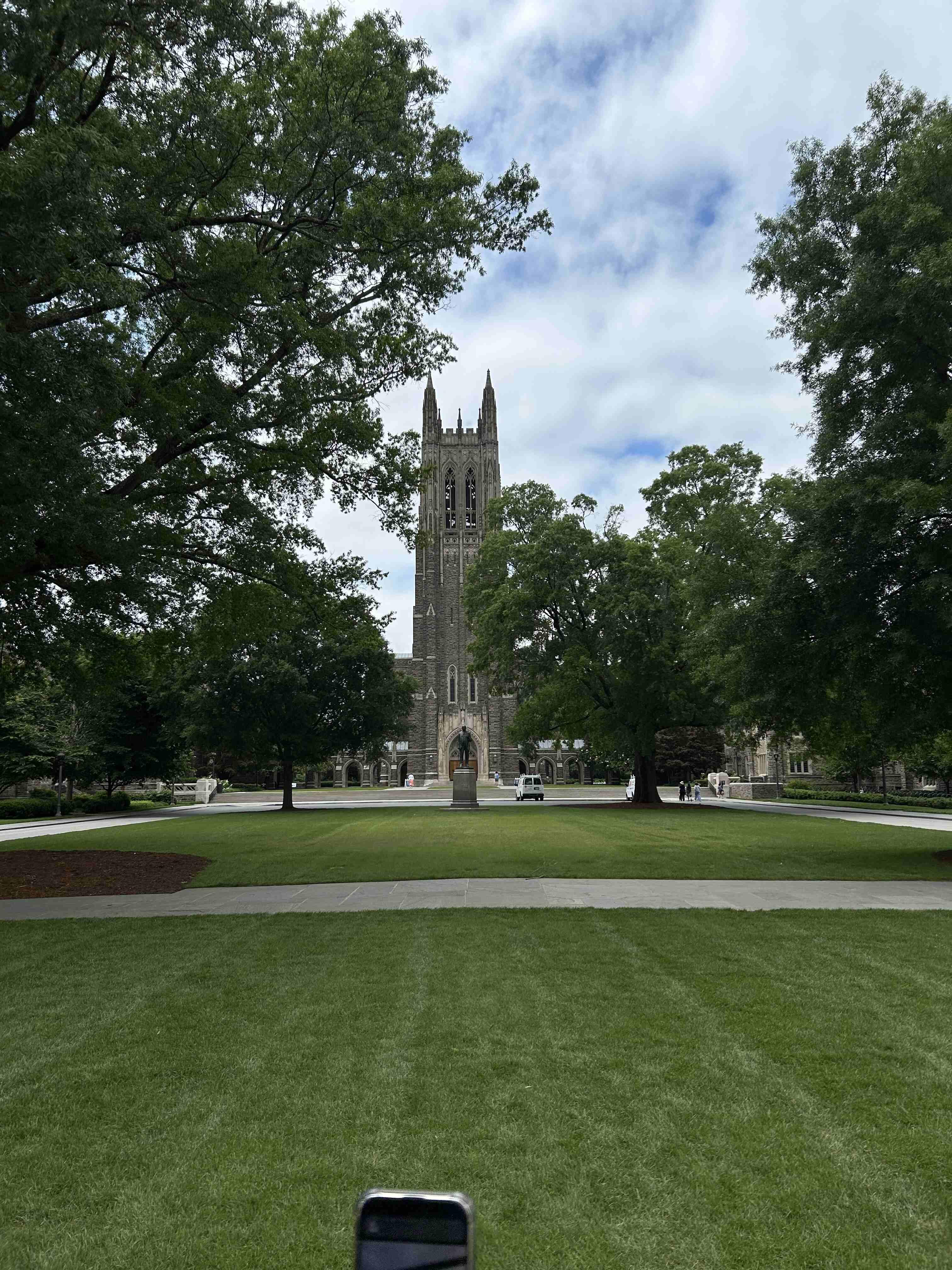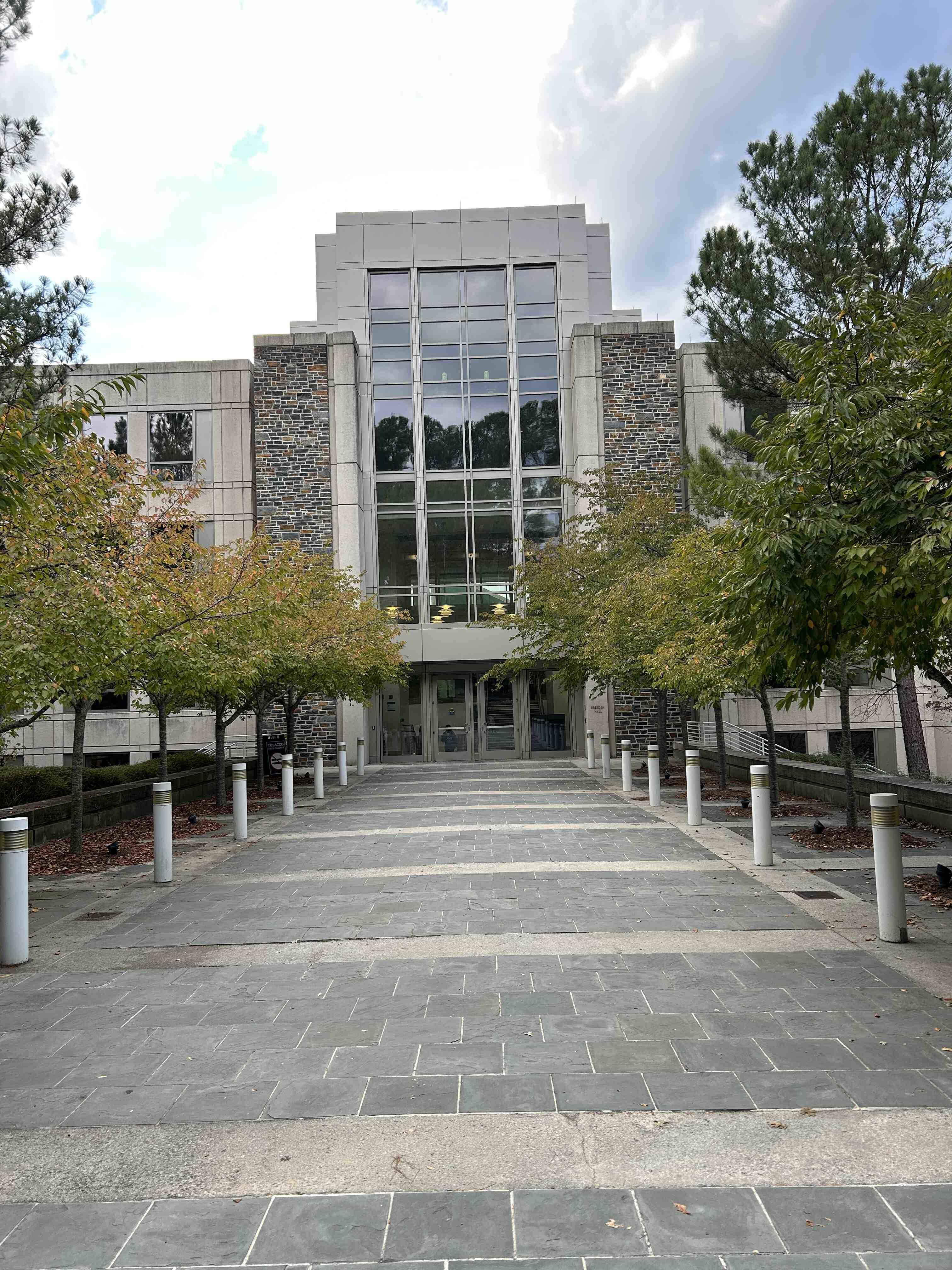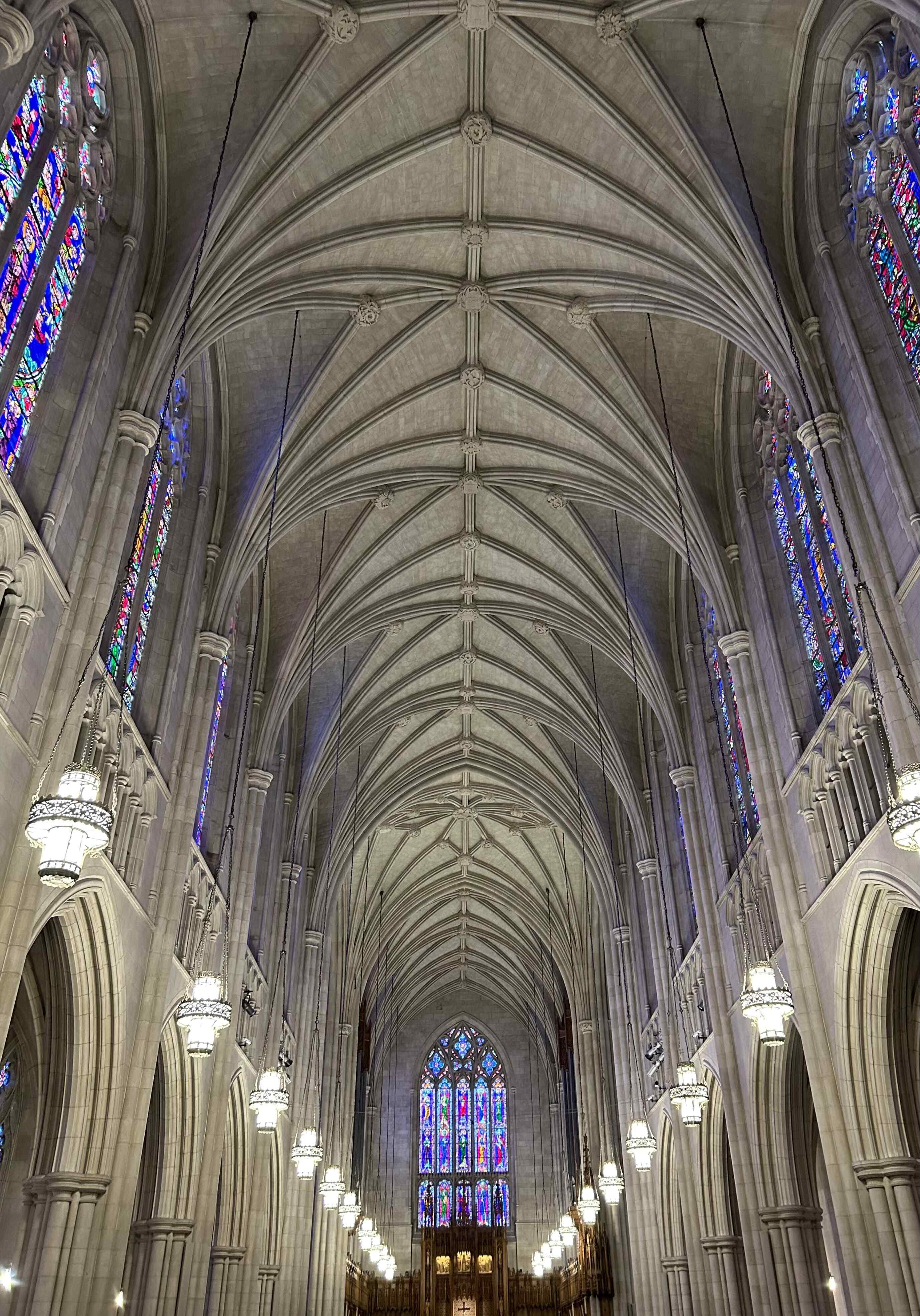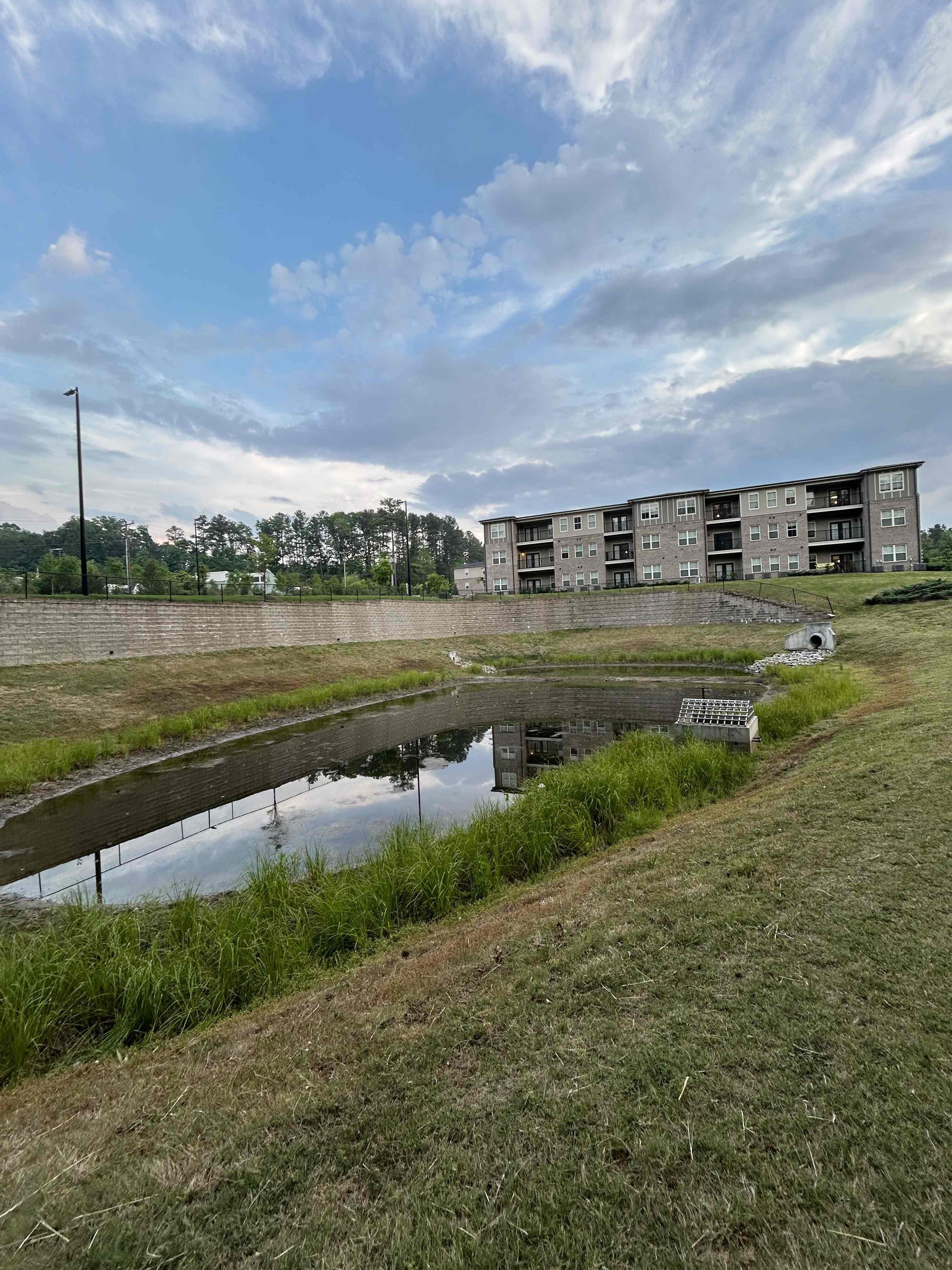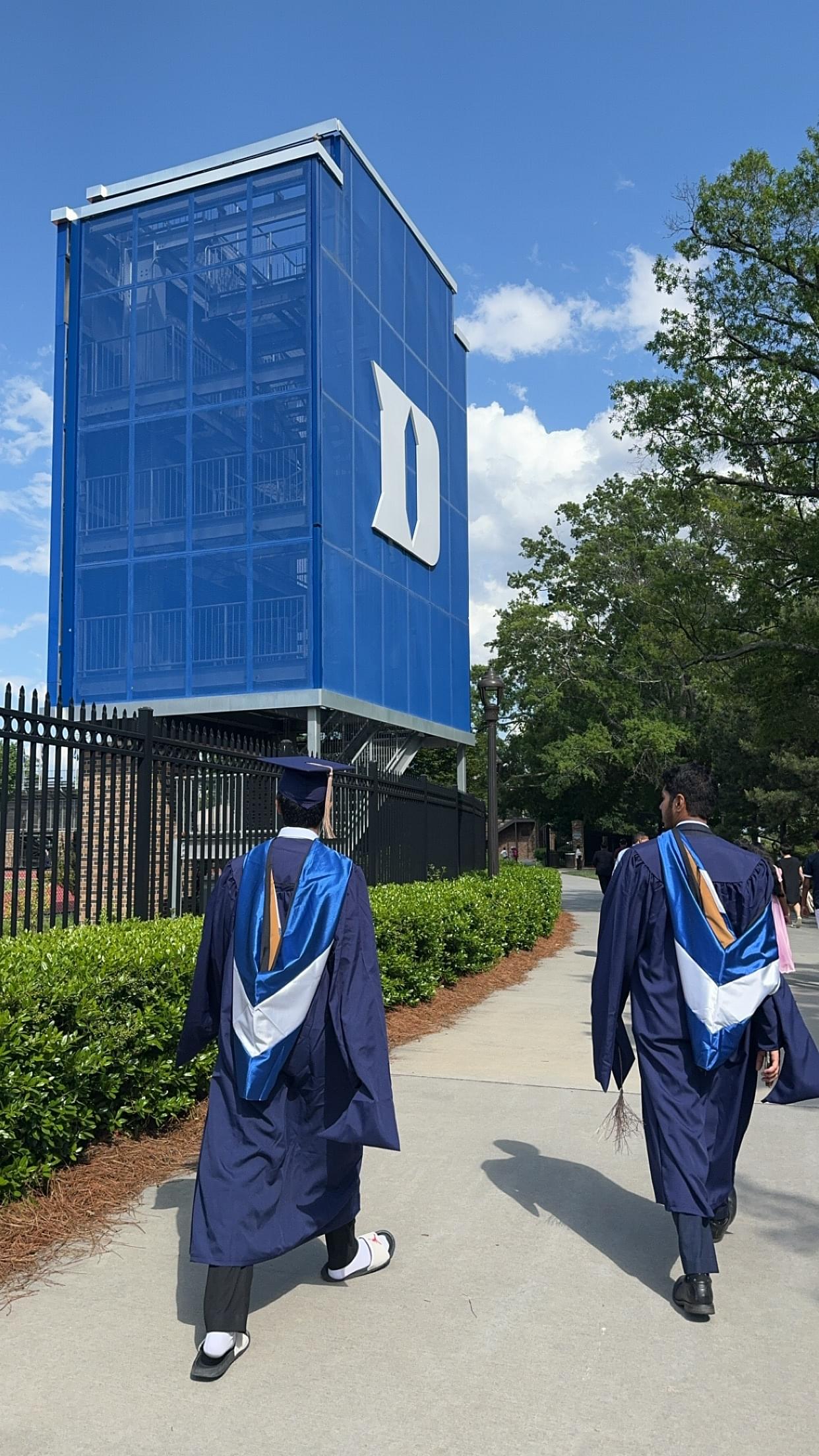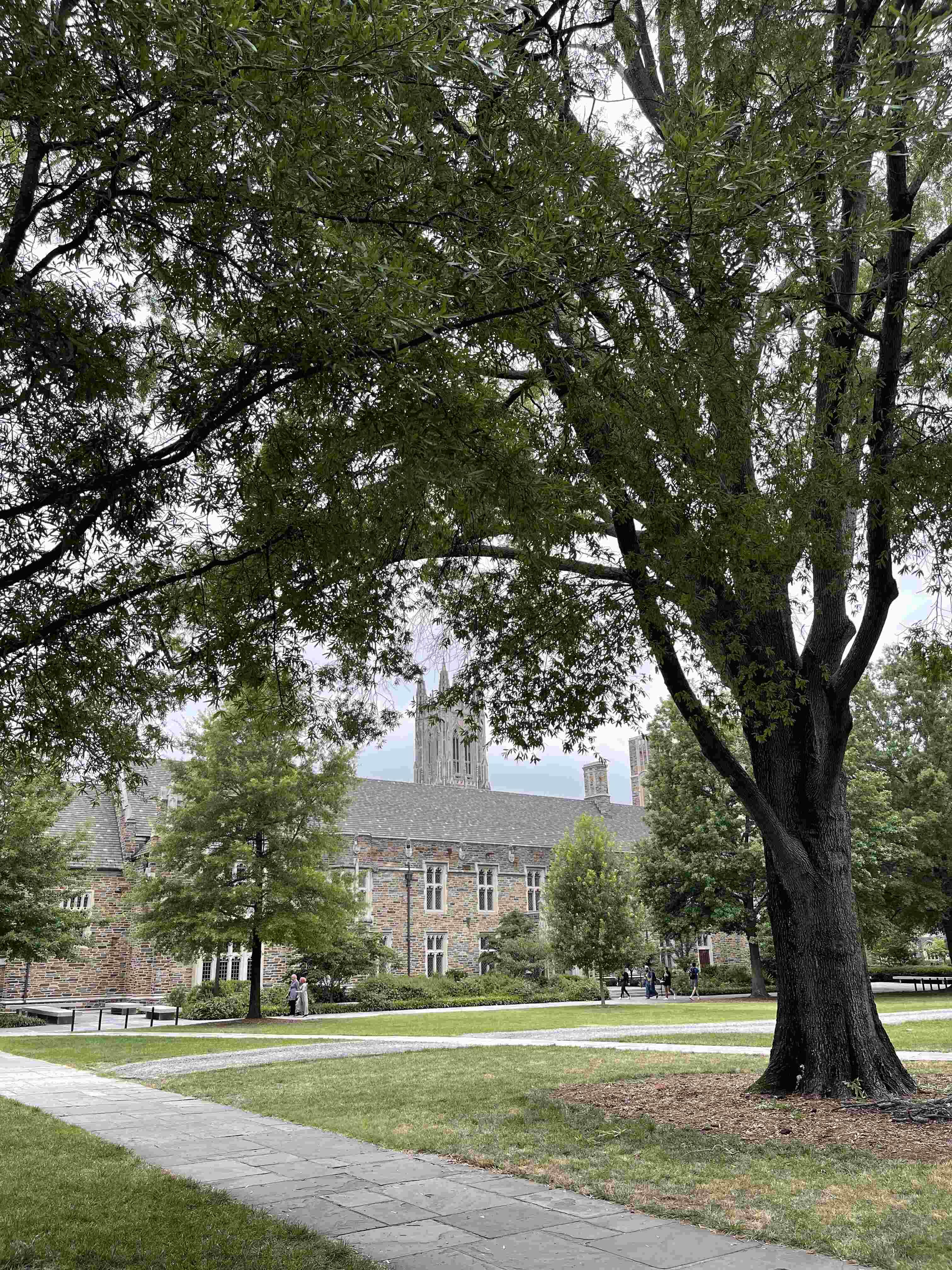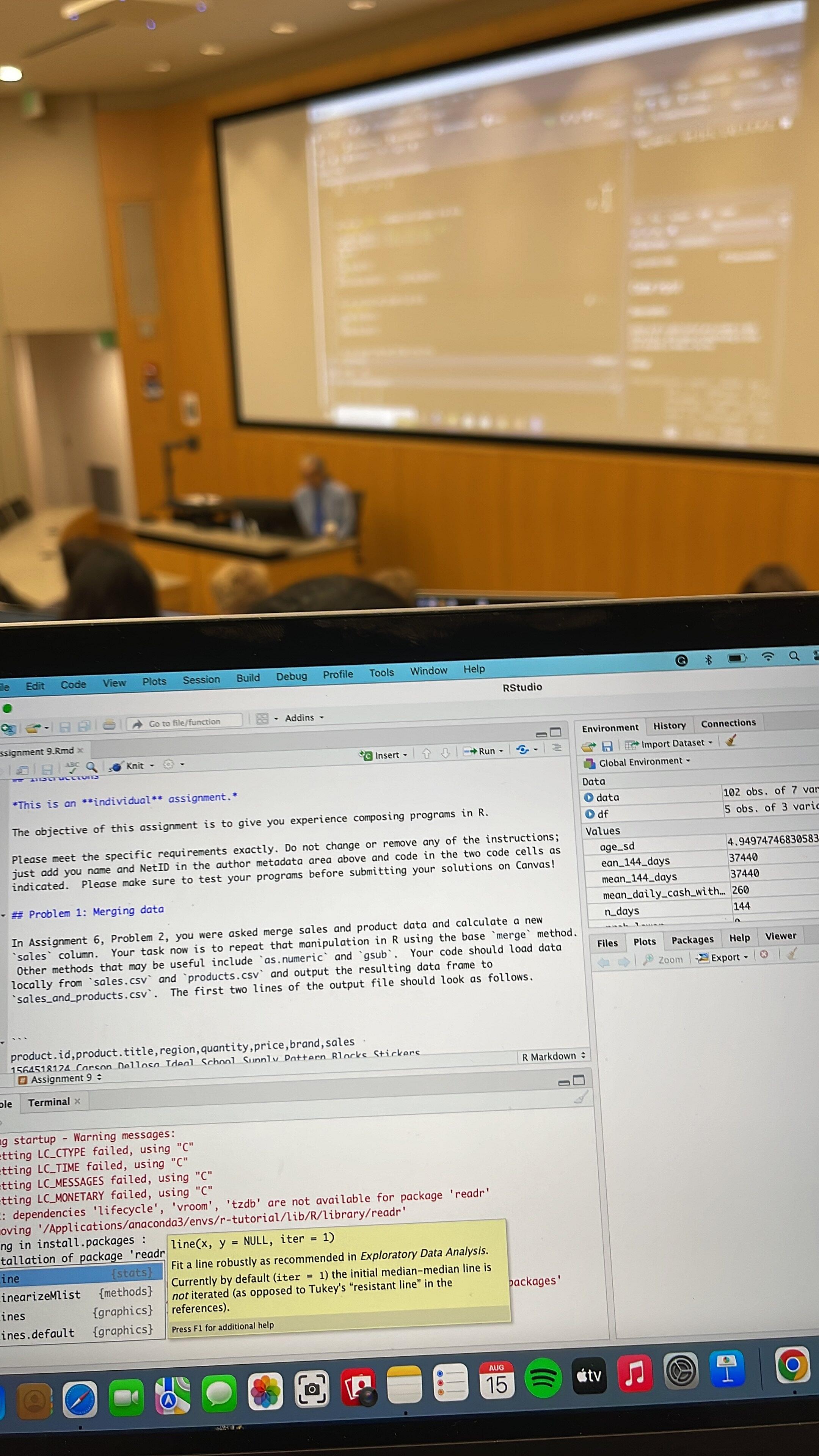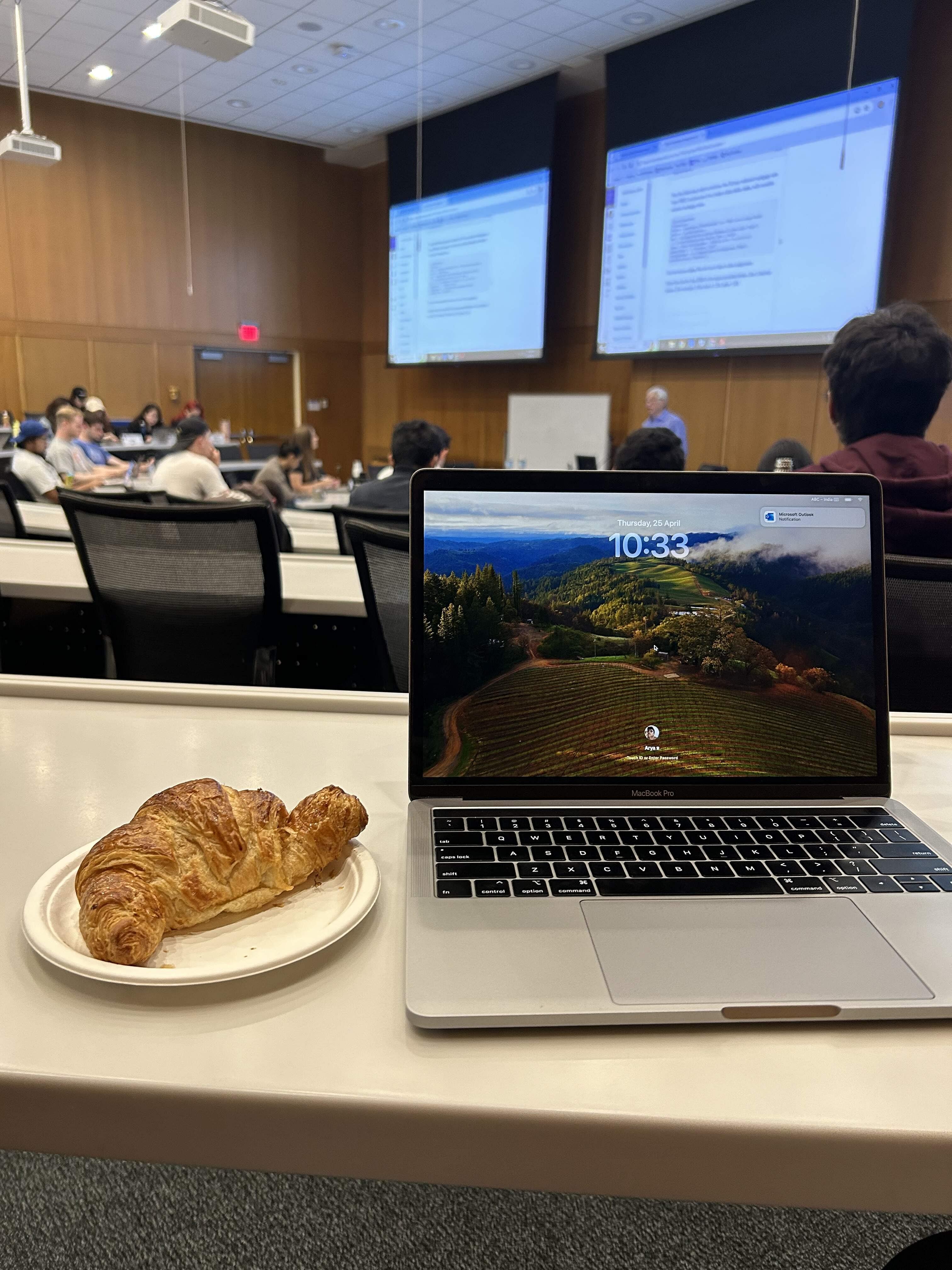What Students Say
Likes
- The professors were really accomplished individuals with stellar academic and professional credentials who also taught equally well.
- Networking events: There was always some networking event happening around the campus which helped me understand the professional aspects of the US as an international student.
- The campus is probably one of the prettiest campuses in the US with amazing sports facilities, student centers and libraries.
Dislikes
- Expensive tuition: The university especially the business school is very expensive and makes the education inaccessible to many deserving students.
- Needs better CMC: The CMC or Career Management Center at Fuqua School of Business does a good job helping with resume drafting and networking tips. But when it comes down to actually getting employers to campus to recruit from the school directly they lack immensely.
- Location: Durham, the city the university is located in doesn’t have a lot happening and doesn’t feel very urban. For some this might hamper their student experience.
Course Curriculum
- The course is difficult not just because of the technical nature of the subjects and high level of critical thinking required for assignments/exams but also because of the fact that you go through 5 semesters covering 46 credits in 10 months.
- The coursework is a mix of both theoretical and practical stuff plus the coursework also includes a capstone project with a real client that requires you to apply all the skills you learnt through the course.
- The positive aspects are the fact that you will acquire all the skills you need to become a successful analyst but the negative aspect is again the intensity of the program. For someone who prefers a more relaxed pace of learning, this program might not be a good fit.
Admission Experience
- I applied to seven universities as listed below for their Master of Science in Business Analytics programs.
- Applied and Accepted: Duke University, Columbia University, University of Michigan, University of Texas Dallas, Boston University and Johns Hopkins University.
- Applied and Waitlisted: University of Southern California
- I was fortunate enough to be accepted or waitlisted by all the universities I applied too but I do understand that why universities reject certain applications. While a good GPA, GRE score, LORs are important they are the bare minimum these days. The most important thing is that we convince the university why we are a right fit for their program and how we will utilize the education and opportunities to advance our personal and professional life. Without a cohesive application especially a stellar SOP that is convincing that you are a deserving candidate, it is very difficult to get accepted by a top university.
- My primary objective was to balance both quality of the program and the university. A strong well designed curriculum at a top university is what usually sets you up for success. At Duke University’s Fuqua School of Business the business analytics masters is only 10 months but covers all the tools and theory that one needs to be a successful analyst. This combined with the Duke brand made it a top choice for me. They also offered me a scholarship which brought down their expensive tuition and made the investment worth it.
- The application process is pretty standard like any other masters application. It consisted of submitting your resume, LORs, SOP, Transcripts and GRE scores along with a couple of additional essay type answers. This has to be submitted by a certain deadline set for the round you apply for. Usually there are two rounds for international students with set application deadlines. Post this some students get invited for an interview and based of the overall application and the interview performance acceptances are sent.
- The business school at Duke doesn’t requires an English language test but does require either the GRE/GMAT/SAT for all masters programs. There are no set minimum requirements but I would say you have to have done reasonably well in the exams given the competitive nature of the application process to get an acceptance.
- Duke Fuqua is really supportive throughout the application process and the admissions team responds quickly to any questions you might have. They also hold webinars and in person events (in some cities) during the application and also for accepted students helping them to meet potential classmates and also alums. These experiences help you make a more informed decision about attending the school. The only challenge are the out of the box & time consuming essay questions but they are interesting at the same time.
- I applied in the Fall 2023 intake and Duke Fuqua does not offer spring intakes not just for my program but any of their other program offerings. I completed my undergraduate studies in May 2023 and didn’t want a long break before my masters. This combined with the fact that fall intake has more program options across the US, influenced my decision to apply in the fall intake instead of spring.
- I started my application process with my counselor in August 2022 and gave my GRE exam in October 2022. By November I had my resume, GRE scores and transcripts ready. In December 2022 I solely focused on my SOP and getting LORs from relevant professors. I reviewed my applications and submission requirements in the first week of January 2023. My mid January I had submitted all my applications as most round 2 deadlines are around 15th January.
Class Schedule
- Classes are scheduled all five weekdays and are usually between 8 am and 4:15 pm. We usually had two classes a day.
- In the MSBA program approximately 300 students are enrolled with an average of 75 students in four of the different tracks.
- 80 students out of the 300 total students are Indian in my batch
- We had classes all five weekdays which is rare for masters programs. Thus the program requires you to be ready for an intensive and rigorous schedule.
Faculty
- Also, the coursework is custom designed by the faculty teaching it thus they really explain the material well.
- Faculty is helpful in finding part time jobs like research assistant and teaching assistant under them directly or one of their peers. Regarding full time jobs they might be able to help but that’s based on how you build a relationship with them throughout the academic year. I personally can’t comment on the full time aspect as I didn’t ask them for help.
- Faculty to student ratio in my course would be 1:15.
- I don’t believe this ratio influences the quality of the education but it definitely affects the interaction with faculty because with so many students in each track it was difficult to get one on one time with the professors.
- Each professor has a different way of teaching but overall the trend was that they covered a theory related to their subject in first half of the lecture and the second half of the lecture was a working session teaching how to use a tool relevant to the theory we just studied followed my open discussions.
- This approach is unique to Fuqua and really helps you understand how what you learn might be used in real time job. I believe that the faculty does a really good job of preparing you for the job market. Plus most subjects have practical projects as part of the coursework requirements that you can then add to your resume to build a strong portfolio.
Campus Life
- My university has only one campus that is located in Durham, NC, USA.
- Duke University provides state of the art sports facilities for all major sports and the official Duke teams are usually top teams in their respective sports. the university also has amazing libraries, student recreational centers along with a fully equipped hospital. Students can avail best in class medical services and psychological services too at no additional costs.
- Major events are basketball games especially the Duke vs UNC basketball game. LDOC or last day of classes is on the last day of the spring semester where the day is filled with many games/activities but also a concert at the end which is usually performed by a well known singer/band. Many small events keep happening throughout the year on campus and there is an application where you can access details for each event happening on campus.
- Basketball is the biggest sport at Duke followed my football games. Both of these are the biggest crowd pullers. Also on some special occasions like the centennial celebrations we had Ed Sheeran performing.
Part Time Jobs
- 10 percent of the students secure TA/RA/DA roles while studying. The pay range is 16-20 USD per hour.
- There are many other on campus jobs found on a portal called JobX. These are primarily for undergraduate students though. But masters students can find a few on campus roles that pay 16-20 USD per hour depending upon the role.
- You can work up to 20 hours a week as an international student on a F1 visa.
- Securing an on campus job is fairly difficult due to high number of applicants and less availability of jobs.
- Students usually earn anywhere from 16 to 20 USD per hour in their part time jobs. Securing an on campus job is fairly difficult due to high number of applicants and less availability of jobs.
- The usual process is reaching out to professors or applying through a job portal called JobX. It’s like any standard job process like applying with your resume and then if you get a call back for an interview preparing for the same before getting an acceptance or rejection.
Placement
- Usually 80 percent of the graduating batch is employed full time within first 6 months of completing the course. These numbers are based on the employment report for our program.
- The average salary range is between 90,000 USD to 120,000 USD for a full time role post graduating from the MSBA program at Duke Fuqua.
- Since it’s a ten month program internships are rare and most students find jobs through applying through job portals and networking with alumni. Campus recruitment is not a part of the program at Duke Fuqua.
- Since it’s a difficult job market in the US and around the world, my batch mates and I have struggled to find full time roles but with consistent applications and networking most of us were able to find relevant positions in good organizations. Example of companies where graduates of my program work at are Capital One, Amazon, Goldman Sachs and more. The roles usually are analytical in nature like business analyst, data analyst, financial analyst etc.
Accommodation
- I found accommodation off campus but it was owned by the university thus I found it directly through the university website and didn’t not have to use any platforms or agents.
- The monthly rent was 800 dollars per person and the monthly utilities were 200 dollars per person in a two bedroom two bathroom apartment shared by two people. The name of the property was Lancaster Commons and it included a gym, common room and a swimming pool. It also had a bus that runs every 20 minutes to the university and back.
- I didn’t face challenges in securing accommodation as the apartment was owned by Duke and the application process was well defined and at no additional cost.
- I would say choose accommodation that has reliable and preferably free transportation to the university in short regular intervals. Additionally it’s very important to not just get a good apartment but also go get a flatmate/roommate you are comfortable with because that can really make or break your living situation.
- My accommodation was 6 minutes away by bus from the University. Most Indian students stay in Belmont apartments or Heights at Lasalle apartments. But these both are owned and operated by external agencies and are not associated with Duke.
Exams
- English language tests are not required but GRE/GMAT/SAT is required. SOP, LOR, Undergrad transcripts and Resume along with a couple of additional short essay answers are required to complete the application requirements.
- Interviews are a part of the application process but not every applicant is invited for one. But each applicant that is eventually accepted does go through the interview process which typically happens 25-30 days post your application being submitted.
- The interview is conducted by a second year MBA student or an admissions ambassador student from the same program you are applying to.
- The questions are behavioral in nature and the interviewers are typically friendly and the nature of the interview is conversational. The interview did not play a part in me deciding to go Duke Fuqua though.
Fees
- My tuition fees including insurance and other miscellaneous student activity fees was 85,000 USD. My monthly expenses were approximately 1,200 USD (800 USD for rent and the rest was spent on groceries, eating out and utilities).
- Since the course was for 10 months I spent 12,000 USD on living expenses. Bringing the total to 97,000 USD for a student prior to deducting for any scholarships they might have received.
- The fees aren’t charged yearly or semester wise instead it’s in three equal installments within the first six months of the program.
Scholarship
- I received a partial scholarship which is named as the merit scholarship. You don’t have to make a different application for this and all applicants are considered for the same by default.
- I initially got a 7,000 USD scholarship that I renegotiated to 12,000 USD.
- Many of my batch mates received similar merit scholarships ranging from 2,000 USD to 20,000 USD. There are no other financial aid options for international students other than the mentioned merit scholarships at Duke Fuqua.
- I am unaware of the exact number of students who receive the merit scholarship but the typical award amount is around 5,000 USD.


